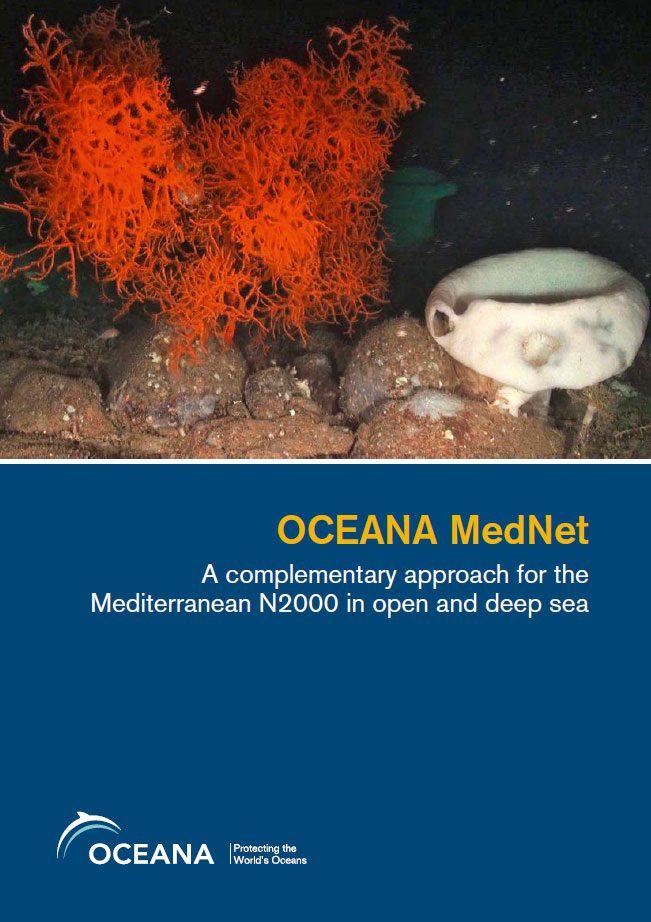Report | November 7, 2016
OCEANA MedNet: A complementary approach for the Mediterranean N2000 in open and deep sea
The Mediterranean Sea is regarded as a biodiversity hotspot and a global priority conservation area. Despite this, it remains under serious threat (overexploited fishing stocks, pollution, habitats destruction, etc.) and y contrast, the current MPA network covers only a minimum percentage of its total surface.
This MPA network is neither comprehensive nor representative, as most of the protected areas are located in the north coast and near the shoreline and protect only a few of most significant habitats. Furthermore, deep sea and open sea ecosystems are not well represented and remain consequently unprotected and unmanaged.
Oceana, in its work towards a healthier, better-managed and cleaner Mediterranean Sea, brings a comprehensive proposal to complement the existing MPA network and the N2000 in this sea.
According to United Nations Convention on The Law of the Sea, protecting and preserving the marine environment is a “General Obligation” of the States and “the right for exploiting their natural resources pursuant their environmental policies and in accordance with their duty for protection” (UNCLOS Part XII. Art.192; Art.193). The CBD establishes that protection of the world’s seas and oceans must be increased at least to 10%. To date, the marine surface protected globally is barely 1% and the situation in the Mediterranean Sea is no different.
The EU Parliament recently adopted a resolution on the EU 2020 Biodiversity Strategy, which recognizes the urgent need for MS to ensure the process of designating N2000 sites by 2012 and highlights the need to step up efforts to protect oceans and marine environments. In this sense, the contribution of European MS towards the 10% target will predominantly depend on MPA designations under the N2000 tool.
This must be equally reflected as a priority to reach the Good Environmental Status in marine and coastal waters pursued by the Marine Strategy Framework Directive. Additionally, designating MPAs will help to comply with commitments at Mediterranean and international levels.
The EU has substantial legislation requiring efforts in marine conservation. It is no longer acceptable to keep delaying protection measures using the “made-up” excuse of a lack of biological knowledge. 2012 is the 20th anniversary of the Habitats Directive and a time to celebrate the positive development of the network on land. Yet how long should we wait to celebrate the same success for European seas under N2000?
This document summarizes the international commitments of the EU and its MS with regards to marine conservation, and shows how the existing gaps in protection of the Mediterranean Sea can be addressed. Thanks to the available scientific information, important areas such as canyons, seamounts or cold seeps, which generate high productivity and biological diversity, are known and it is therefore possible to locate candidates for protection.
Oceana MedNet is also proposed as a strategic tool for improving the marine N2000 covering the open and deep sea gap. A set of recommendations is also provided at the end of the document.


